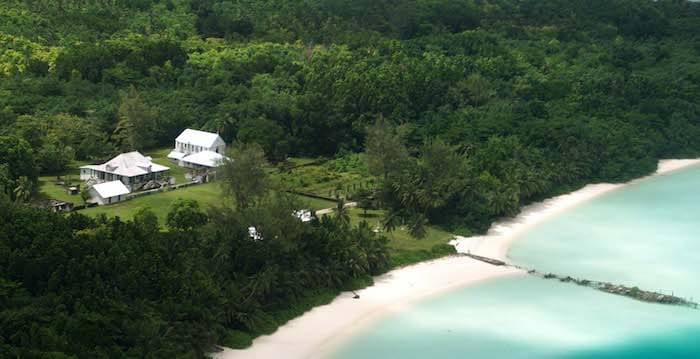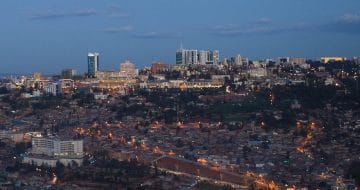Britain’s colonisation of the Chagos Islands continues to this day, in apparent defiance of international concern and court judgments, writes Sheffield Hallam graduate Rachael Shaw. She contends the government’s current proposal for the Chagossians, under the Nationality and Borders Bill, is not enough

For more than 50 years, the Chagossians, a small Creole ethnic group native to the Chagos Islands, have been fighting the UK government for the right to return to their homeland. The Chagos Islands, an archipelago in the Indian Ocean between Tanzania and Indonesia, is a British colony, however the legitimacy of the colonisation is questionable. In 2019, the International Court of Justice found that the UK was in breach of international law through its continued claim to the Chagos Islands. Britain has a shameful history of ill-treatment of the Chagossians, which began through the forcible removal of the islanders from the archipelago in the 1960s, leaving many of the community destitute. In July 2022, the government proposed a policy which may offer some concessions in the form of a route to UK citizenship. This is not nearly enough, and the Chagossians’ search for justice continues.
The Chagos Archipelago in the Indian Ocean belonged to Mauritius, and in 1968, when Mauritius gained independence from Britain, Britain decided to keep Chagos. Chagos could only be separated from Mauritius if it had no permanent population under international law. This is when the erasure of the Chagossians began as British politicians campaigned that there were no permanent inhabitants on the island. The British government expelled the inhabitants of Chagos to make way for an American military base on the archipelago’s largest island, Diego Garcia. The ‘payment’ Britain received from the Americans for the islands was reportedly a discount on the Polaris nuclear submarine system.
Taking the campaign to court
Looking at the court’s perception of the reported human rights violations, we can begin with R (on the application of Bancoult) v Secretary of State for the Foreign and Commonwealth Office [2001] 3 LRC 249, where the High Court deemed the removal of the islanders illegal. It was also found that both the British and American governments had deliberately misled not only their own legislative bodies but the United Nations through their claims that there were no permanent inhabitants on the island. In 2004, however, the government nullified the High Court’s decision by invoking the royal prerogative, ultimately, the prerogative powers of the Crown appear to have been used as a tool for depopulation and the violation of human rights through a façade of supposed decolonisation.
Want to write for the Legal Cheek Journal?
Find out moreIn May 2006, the High Court ruled that the Orders-in-council were unlawful and that the islanders were entitled to return to Chagos, however, this was overturned in the 2008 House of Lords decision in R (on the application of Bancoult) v Secretary of State for Foreign and Commonwealth Affairs [2008] UKHL 61.
The courts in Strasbourg and The Hague
The treatment of the Chagossians was further emphasised through the 2012 European Court of Human Rights judgment in Chagos Islanders v The United Kingdom ECHR 460 (2012). The application here was deemed inadmissible as the Court felt it did not have jurisdiction over a colonial territory to which Britain had not actively extended its European human rights obligations. The court contended that the territorial application of Article 56 of the European Convention on Human Rights could not be applied as it was not expressly extended to the territory. The deep-rooted issues in the process of decolonisation are apparent, and the colonial past — and perhaps present — of European states should be developed to recognise that human rights made under the European Convention on Human Rights are unequivocally universal. The case of the Chagos Islands is indeed an example of colonialism persisting in the twenty-first century, as those displaced citizens have repeatedly been denied the right to return to their homeland.
An advisory opinion was issued by the International Court of Justice on the legal consequences of the separation of the Chagos archipelago from Mauritius whereby it concluded that the process of decolonisation of Mauritius was not lawfully completed (ICJ Advisory Opinion, 25 February 2019, General List No. 169). The court further concluded that the UK had an obligation to bring to an end its administration of the Chagos archipelago “as rapidly as possible”. The International Court of Justices’ opinion, while only advisory, was a step in the right direction to bring colonialism to an end and promote human rights, however, it also did little to focus on the right of the Chagossians to return to their homeland.
The United Nations General Assembly accepted the advisory opinion and voted in a 116-6 motion to set a six-month deadline for Britain to withdraw from the Chagos islands. It has now been four years and Britain has not withdrawn. In its apparent refusal to withdraw from Chagos, Britain has been described as a “rogue state” (for example, by John Reynolds, in his book Decolonising the Chagos Islands?), and further raises the question of why Britain continues to colonise Chagos.
The Nationality and Borders Bill
The latest attempt of the British government to appear to listen to the complaints and demands is through the release of a proposed policy paper in July 2022, the Nationality and Borders Bill: Chagossian nationality factsheet. The proposal states that, currently, descendants of the removed Chagossians have no entitlement to British nationality, and so the introduction of this Bill will allow direct descendants to acquire both British nationality, and British Overseas Territory citizenship. While allowing descendants to obtain British nationality may appear to be a development, what the Chagossians want is to be able to return to their homeland. This Bill is not what the Chagossians have spent years fighting for. For them, it’s not justice.
Rachael Shaw is a recent graduate from Sheffield Hallam University and is interested in human rights law.
 (
( (
(

